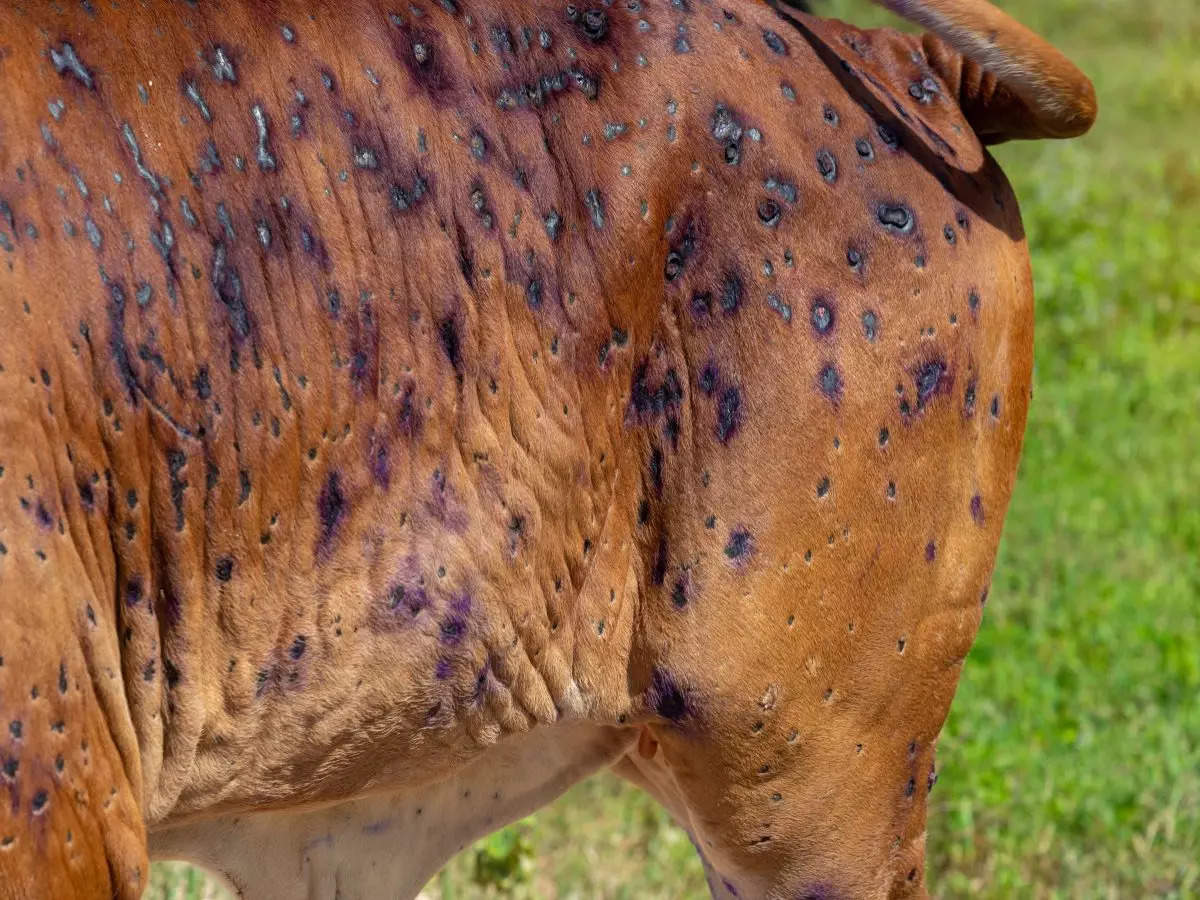
Lumpy skin disease (LSD) is a highly contagious viral disease of cattle and buffalo. Infection typically includes symptoms like fever, 2-5 cm sized skin nodules, abortion in pregnant animals, depression and reduction in milk yield. The disease can result in animal welfare issues and significant production losses.
Lumpy skin disease has spread to 15 states and affected more than 20 lakh animals, according to government data. The Centre had last month said more than 67,000 animals have died since the outbreak of the lumpy skin disease in July.
LSD is spread by movement of affected animals, by insects or parasites such as flies, mosquitoes and ticks, by contaminated equipment and directly from animal to animal in some cases.
Can it spread to humans?
This disease is not transmitted from animals to humans. "There is no evidence that the disease can transmit from animals to humans. It is not a zoonotic disease. It is goat pox that has gone into the cow. That is how the transmission happened. It means it is transmissible from animals to animals. The buffaloes, cows, goats and sheep are affected. No such case of transmission from animals to humans has been reported yet," Dr. Rita Goyale told news agency ANI.
“The virus has no zoonotic importance. It does not infect humans through consumption of milk or meat,” Maharashtra Animal husbandry commissioner Sachindra Pratap Singh said at a media conference, warning that misinformation on social media would attract strict action.
Attempts to curb this disease
Lumpy skin disease has spread in many states including Gujarat, Rajasthan, Punjab, Haryana, Uttar Pradesh and Madhya Pradesh. Governments are taking steps to prevent further spread along with administering vaccines.
The Yogi Adityanath government in Uttar Pradesh has completed over 90% vaccination of cattle against the lumpy skin disease in seven districts while in another 22, the progress is about 80%. UP is the first state to cross the 1 crore dose mark in 40 days.
Amid the rising number of lumpy skin diseases, Prabhu B Chavan, the Minister of Animal Husbandry in the Karnataka government has assured the farmers and cattle owners that the government is banning animal slaughter and transport to combat the situation.
Where did it begin?
The first case of lumpy skin disease was reported in April in Gujarat's Kutch region. The worst affected state is Rajasthan, according to official data.
Cases of lumpy skin disease were first reported in India in September 2020 when a strain of the virus was found in Maharashtra.
Impact on milk
"It is safe to consume milk from the infected cattle. There is no problem in the quality of milk even if you have it after boiling or without boiling," IVRI Joint Director Ashok Kumar Mohanty told news agency PTI.
The disease and its impact on milk output can be arrested if cattle are vaccinated on time. If cattle are infected for the first time and not vaccinated, then milk production can get reduced up to 40-50 per cent, he added.







